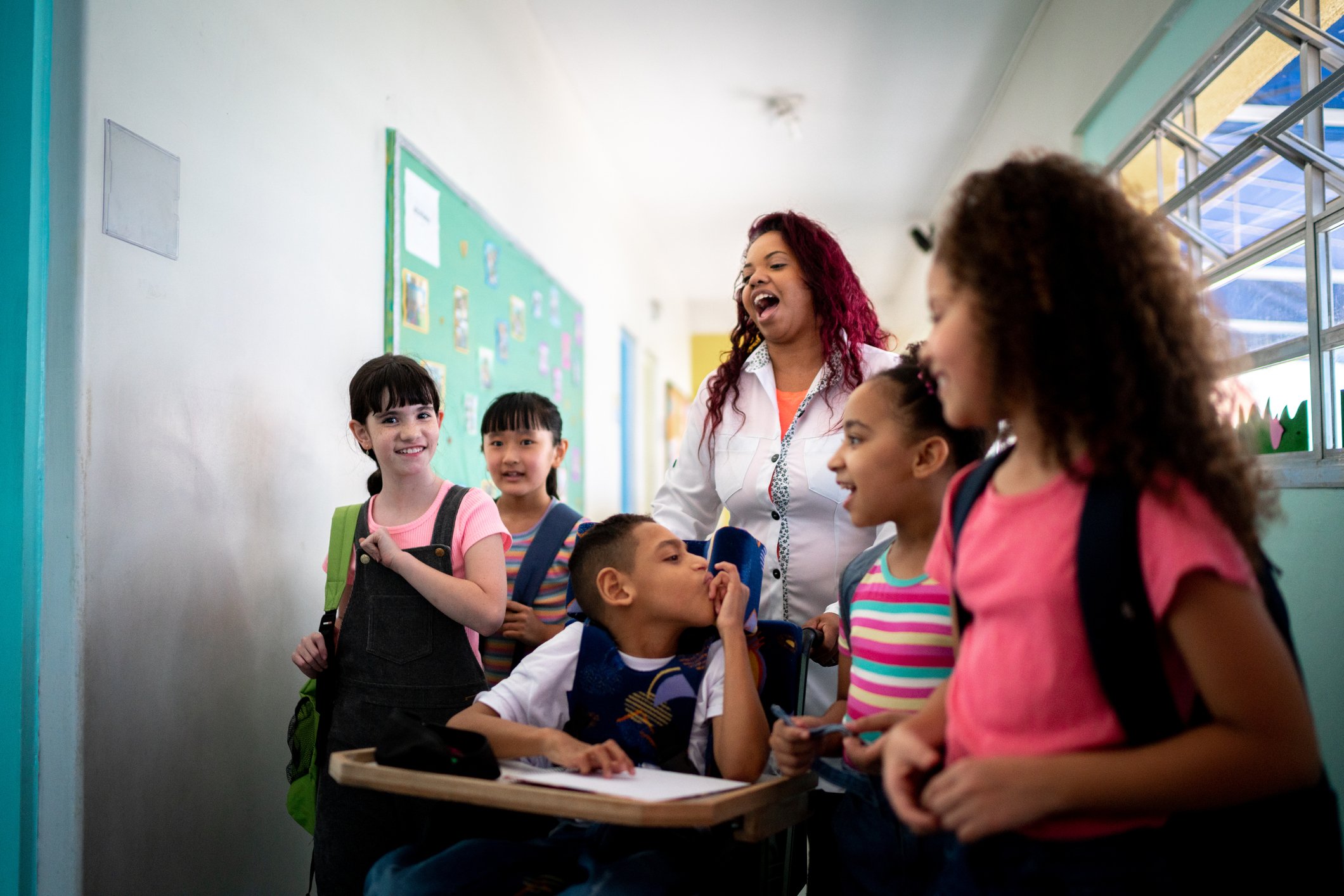The mission of public schools is to prepare students to be productive, responsible members of society. Part of that mission is to help identify children who may need extra help before that need becomes apparent and a child falls behind. It’s an important job.
Identifying students with special needs who might have otherwise gone unnoticed and underserved is just one benefit of strong special education programs in public schools. There are other, unseen benefits, including what students can learn from one another. When truly exceptional students with disabilities are included in the general education classroom, there are immediate, long-lasting benefits for all kids. Special needs students learn how to navigate the real world in a safe and supported way, maximizing their potential.
Understanding the mysterious world of human interaction is difficult for everyone. For a special needs student who may already experience a high level of isolation, social interaction is even more confusing. Inclusive classrooms allow them to watch appropriate behavior, practice conflict resolution and learn basic concepts that most people take for granted, like sharing, taking turns and saying “I am sorry.”
Many of our most challenged students are capable of learning skills that let them hold jobs and lead fulfilling lives. The more education they get, the more independent they can be.
Lessons in empathy
One huge benefit of inclusivity is that exposure to special needs students teaches other children compassion and empathy, two traits that define character but have fallen into disregard.
Half a century ago, the people who are now deciding to eliminate the Department of Education were in elementary school with me. I remember when it was rare to see a special needs student in our classes. Some of my classmates could have used a little more exposure to empathy.
Sadly, all too often those students who were even mildly different, shy or easily triggered became the butts of ridicule, pranks and mean jokes. Today, kids with severe learning or mental disabilities are included in many general education activities like homeroom or classes like music, art, media, STEM and gym. Today’s children are much more empathetic.
If you could see how interacting with a vulnerable child brings out the best qualities in another child, you would understand the value special education programs add to our schools. Most kids in elementary school today don’t think it’s cool to bully special needs kids anymore. They understand that teasing a kid who cannot defend themselves is cruel and makes them look bad.
Sometimes, general education kids who are angry or show defiance start to develop maturity as they engage with a student who struggles. Perhaps helping a kid who struggles externally helps soothe some of the struggle that all kids feel inside.












